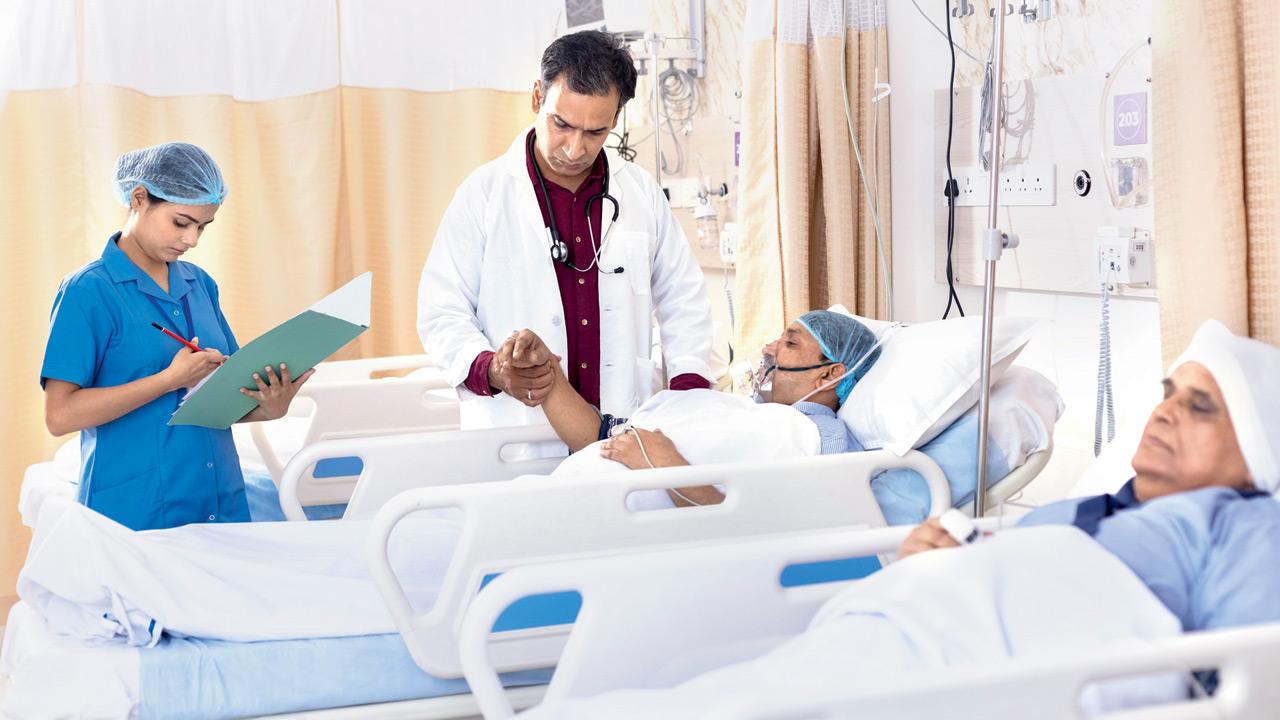
In a major stride towards improving mental healthcare infrastructure in the city, St George’s Hospital in south Mumbai is preparing to inaugurate a fully equipped Psychiatry and Addiction Treatment Ward. This new facility is set to address the escalating need for accessible and affordable mental health and de-addiction services, particularly for underprivileged populations.
According to hospital authorities, the newly developed ward will have a total capacity of 30 beds, of which 20 beds will be dedicated exclusively to psychiatric care and the remaining 10 will be reserved for patients undergoing treatment for substance use disorders. The initiative is part of the nationwide Nasha Mukt Bharat Abhiyan — a campaign launched by the Government of India to combat substance abuse and promote a drug-free society.
“Initially, 10 beds have been sanctioned under the Nasha Mukt Bharat Abhiyan for starting the de-addiction treatment facility,” said a hospital official. “As demand increases, provisions are in place to expand the capacity and include more beds. This marks a significant milestone for the hospital, which hasn’t had a dedicated psychiatric unit since becoming independent from JJ Hospital.”
Until now, St George’s Hospital had been attending to mental health patients through its Outpatient Department (OPD) but lacked the authority to prescribe medications for de-addiction. As a result, patients who required both medication and psychological counselling were often referred to other government or civic-run hospitals in the city that are authorised to provide such care.
“Since our separation from JJ Hospital, we have only been able to provide preliminary psychiatric consultations. Patients who needed more intensive psychiatric care, particularly those requiring both counselling and medication for de-addiction, had to be redirected elsewhere,” said a senior doctor from the hospital. “With the launch of this ward, we will finally be able to offer comprehensive treatment under one roof.”
One of the major challenges in de-addiction treatment is the cost of medication, which is often prohibitive for economically disadvantaged patients. Hospital officials highlighted that while counselling is a vital component of treatment, it is usually insufficient without pharmacological support. Many patients relapse due to the inability to afford ongoing medication.
“The biggest issue we currently face is the high cost of de-addiction medicines. Patients who cannot afford the full treatment, especially the medication, tend to fall back into addiction even after completing counselling sessions,” explained another hospital representative. “With the government now providing de-addiction medications to the hospital, we will be able to offer more effective and sustained treatment at no cost to the patients.”
According to consulting psychiatrist Dr Rashmi Joshi-Shetty, it has become a very competitive world, and for children, sometimes even the parents’ pressure pushes them into depression. “On the other hand, easy access to such addictive products makes it even more dangerous. However, there are quite a few behavioural changes that can be observed in children when they start using such substances. They generally sleep a lot, are tired, zoned out, and become unresponsive. Some show drastically opposite signs, such as over-irritation, anger issues. In case parents see such drastic changes, they should immediately take professional help instead of shouting at their children,” the doctor suggested.
The recent Global Youth Tobacco Survey report of 2019 stated that 5 per cent of 3765 students aged between 13 and 15 years currently used tobacco products in the state. Though this number looks small, health experts within the public health system have mentioned that they have observed a rise in the number of minor patients approaching the de-addiction centres in recent times. “Earlier, the age group of most patients used to be 35-50 years. However, we have now observed that a greater number of patients aged between 13 and 30 years are being brought by their parents across all deaddiction centres established at district-level by the government,” said a senior official from the public health department.
The official further stated that one of the reasons for the rise in addiction cases among youngsters is the easy availability of various products and also the financial capacity to buy them. “Today, the children get huge amounts of pocket money, and through social media, they easily come in contact with dealers. Since there is no monitoring of what these children use their pocket money for, they just buy and consume these substances. Also, today it is not just about cigarettes or alcohol. These young children are addicted to e-cigarettes, hukkah and multiple drugs. Dealing with such young children with such a heavy substance abuse record has become challenging,” said the official.


